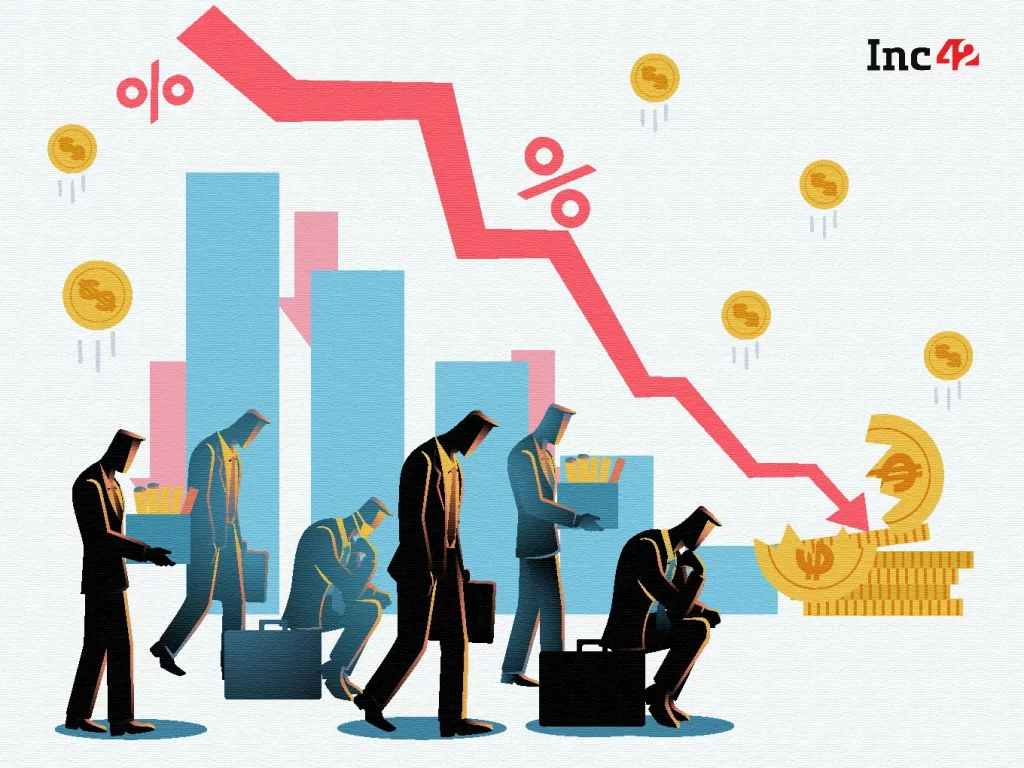The Winter of Startup Funding Has Come. What’s the reason behind this?
Reality is now sinking in. Startups in India have been the topic of lively debate in business circles for a long time because of the high valuation and the plenty of capital, but now they are suffering rough weathers. Businesses are being pushed to examine their business strategy and the path to success as financing starts to dwindle. Layoffs and, in some instances, the suspension of some verticals’ activities because of demands, have been a recurring theme in the startup world during the last several week. Swiggy, the legendary food delivery decacorn, stated early last month that it was reducing its Super Daily service and halting its Swiggy Genie service due to operational difficulty.
Layoffs and cost-cutting measures by startups and reorganisation of firms around growth sectors are the most visible effects of the global economic recession in India.
Founders of unicorn companies like Zeta’s Bhavin Turakhia and CRED’s Kunal Shah are speaking out about the importance of unit economics, sustainable growing, and other business basics for startups with runway.
There have been many Indian firms who have had to make layoffs since the beginning of 2022. There were more than 1,800 workers let off from Meesho, Unacademy, Trell, Furlenco and Lido Learning on April 18, according to our investigation.
However, Edtech unicorn Vedantu, which laid off 424 workers on Wednesday alone, is far from the first business to announce layoffs this month.
The number of unicorns India will produce daily in 2021 will be comparable to the hysteria generated in 2021, when a new unicorn will be born every day. Investors and startup funds were pursuing entrepreneurs, pushing up valuations and generating billion-dollar firms across a wide range of industries. At least 44 unicorns worth $93 billion were generated in 2021, according to statistics from Invest India. Data as of May 5 shows that thus far this year there have been 14 unicorns, with a combined value of $18.9 billion. India now has 100 unicorns worth $332.7 billion, all of which are located in the country.
No, we’re not in the midst of a recession, but are we in the midst of another downturn in startup growth?
Entrepreneurship and the economic downturn
There’s still no complete recovery from the epidemic, as seen by the recent discussion of a worldwide recession after the early economic slump caused by Covid in 2020. A record-breaking $42 billion was pumped into the Indian startup ecosystem in the year 2021, but maybe the celebrations were premature.
There are alarming indicators throughout the world, such as China’s government’s stringent lockup, which has slowed development and halted most of the post-Covid rebound in manufacturing. Interest rates have gone raised in both India and the US, which has resulted in lower startup and public investment.
War in Europe is pushing up energy and necessities costs as climate change continues unabated in the shape of global heatwaves.
2017 was a year of record highs and exorbitant values, according to the numbers. Because of this, the harm will be more extensive than usual. Founders are everlasting optimists who must ride the wave when the chance presents itself. Those who get caught up in the wave’s current are certain to be swept away. In order to get a six, you have to be aware that you may be caught at the boundary while trying to knock it out of bounds. According to him, even if 5000 or so employees were laid off in this round of correction, it would be a very small percentage of the employment that Indian entrepreneurs have produced. Nearly 13,000 new employment have been generated as a result of India’s 100 unicorns, it is believed.
Which industries will take the brunt of the impact?
Fintech, digital health, and retail tech are expected to have the worst declines in financing, according to a CB Insights analysis. Retail tech startup funding is expected to drop by 50%.
There were 1,443 transactions in the fintech sector in the first quarter of 2022, which is expected to fall to 1,038 in the second quarter of that year. The fintech sector has inked 519 transactions so far in Q2, according to the report.
It is expected that retail contract signings would drop to 556 in Q2 of 2022 from Q1’s 891. Q1 witnessed 663 agreements in the retail sector, which is expected to fall to 470 in Q2.
In the meanwhile, for the first time since 2020, there will be less than 100 unicorns created in a quarter. According to predictions, there will be just 62 unicorns in Q2 of 2018. The United States and Asia are predicted to suffer the most, with a projected 43 percent and 67 percent drop in the number of new unicorns.
What can be done?
Even if money is still a concern, it’s advisable to turn to the current investors for help in order to get through the difficult next few months. Nobody likes to catch a falling knife, thus no one new will want to join in at this time. If the company’s founders are well-known to current investors, they’ll usually be more than happy to help. As a well-known venture capitalist, reminds me, founders must keep the best ties with their investors, since they may even be prepared to sacrifice a little and stand with brilliant founders who they have known for a long time.
The diversity of investors in start-ups is a key consideration in all of this. Entrepreneurs may feel relieved if their start-up is backed by venture capitalists and private equity investors (VC and PE). Investing is necessary for these funds to provide the profits sought by their limited partners (LPs).
Other factors may be at play in the struggles of certain start-ups. The pandemic’s tailwinds, which propelled numerous start-ups throughout the epidemic, are now fading or perhaps disappearing. Mask manufacturing companies in Tiruppur and sanitizer manufacturing companies elsewhere may have sprung up at the height of the epidemic. There is little question that demand for edtech and healthtech startups, which witnessed a surge in demand when schools and colleges reopened, will begin to decline as parents return to visiting doctors’ offices and taking their children back to school. Layoffs and other measures of restructuring will be necessary as a result of this impact. There had been an increase in hiring in response to an increase in demand. Afterwards, when demand decreases, the opposite will be true.

As soon as funds have been raised, venture capitalists and private equity investors must put them to use.
Truly resilient people can withstand any challenge. It’s all about how entrepreneurs handle the rough times, how fast they can pivot to new sectors, and how they manage their relationships with investors (Venture Capitalists). It serves as a reality check for investors, who are typically perceived as the driving force behind high prices. Investment in long-term enterprises that support the right founders is the most important part of the equation. Tough circumstances don’t endure long, but tough people do. Starting a new business is a stressful period, thus entrepreneurs need toughen themselves. A cold snap is on its way.
So, to sum it all together.
What is happening in the startup environment after two years of rising valuations and funding, according to search and venture capital firms
- Recently, several firms have postponed recruiting until the next quarter in order to avoid having to deal with open positions.
- Employers are cutting counteroffers as fewer vacancies become available.
- There will be stricter controls on new recruits’ wages.
- For present staff, performance evaluations and quality control will be more rigorous.
- Burn plans are being discussed in boardrooms, and they will have an effect on employment and right-sizing.
- Startups are considering ventures outside of their primary focus and taking a cautious approach to growth.
- As a consequence of mergers, acquisitions, and consolidation, investors (Venture Capitalists), board members, and business founders expect layoffs to grow and team sizes to reduce.

